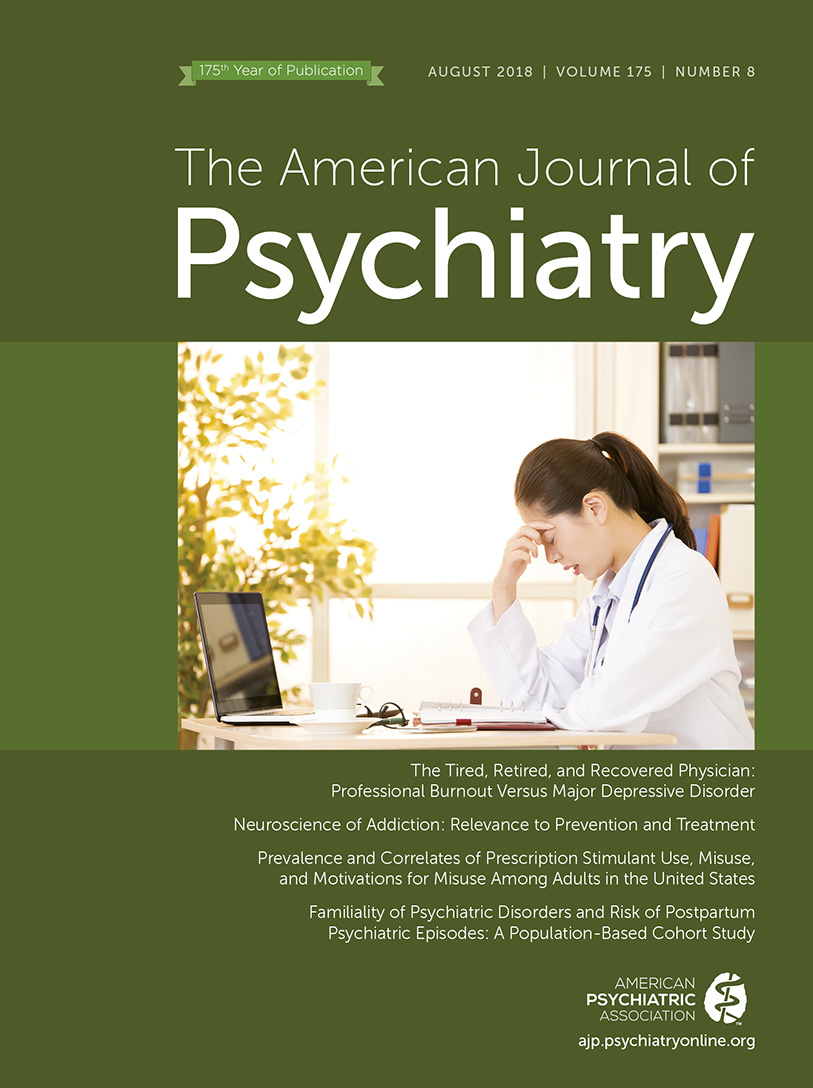The Temporal Relationship Between Alzheimer’s Disease and Depressive Symptoms: Variable Matters
To the Editor: In their recent comprehensive analysis, published in the June 2018 issue of the Journal, Donovan et al. (1) present convincing support of the hypothesis that emerging neuropsychiatric symptoms represent an early manifestation of preclinical Alzheimer’s disease. Donovan et al. appropriately viewed their analysis as a first step toward understanding the temporal relationship between Alzheimer’s disease and depressive symptoms in cognitively normal older adults, with the initial aim to examine association rather than causation.
Physiological aging is accompanied by a chronic low-grade proinflammatory state, which has been named “inflammaging” (2). Inflammaging likely acts as a prodromal cofactor in the subclinical course of Alzheimer’s disease (3). Neuroinflammation can also be associated with amyloid beta burden independently of inflammaging (4). In addition, several lines of evidence also associate inflammation with depressive symptoms (5). This makes the relationship between Alzheimer’s disease and depressive symptoms more complex. If Alzheimer’s disease causes inflammation that leads to depression, inflammation can be considered a mediating variable in the relationship between Alzheimer’s disease and depressive symptoms. Alternatively, if the strength of the relationship between Alzheimer’s disease and depressive symptoms is changing across levels of inflammation, then inflammation is a moderating variable. Eventually, inflammation could also be a confounding variable if it causes both Alzheimer’s disease and depressive symptoms independently.
1 : Longitudinal association of amyloid beta and anxious-depressive symptoms in cognitively normal older adults. Am J Psychiatry 2018; 175:530–537Link, Google Scholar
2 : Inflamm-aging: an evolutionary perspective on immunosenescence. Ann N Y Acad Sci 2000; 908:244–254Crossref, Medline, Google Scholar
3 : Inflammaging as a prodrome to Alzheimer’s disease. J Neuroinflammation 2008; 5:51Crossref, Medline, Google Scholar
4 : Microglial activation by Alzheimer amyloid precursor protein and modulation by apolipoprotein E. Nature 1997; 388:878–881Crossref, Medline, Google Scholar
5 : The association between C-reactive protein, Interleukin-6 and depression among older adults in the community: a systematic review and meta-analysis. Exp Gerontol 2018; 102:109–132Crossref, Medline, Google Scholar



